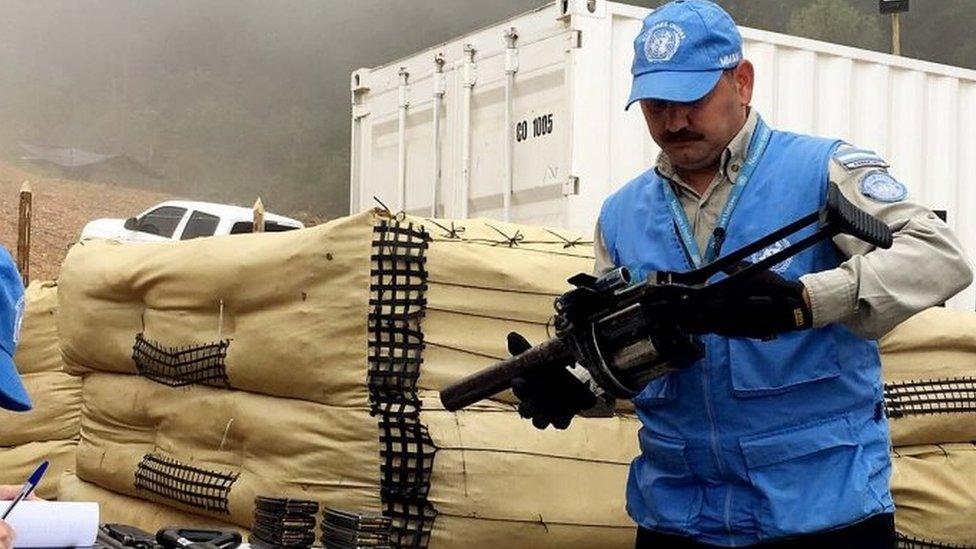Colombia's Farc has completed disarmament, UN says
- Published

The registration by UN monitors of Farc weapons ran over schedule drawing concerns the handover would never be completed.
Farc rebels in Colombia have handed over all of their personal weapons, completing the transfer of arms a day ahead of a revised schedule, United Nations monitors in Colombia say.
A total of 7,132 weapons have been registered and boxed away, the UN says.
The monitors said they had also found and emptied 77 out of the Farc's 900 arms caches hidden around the countryside.
The arms handover is a key condition in last year's peace agreement.
The deal seeks to end more than five decades of conflict and negotiations between Colombia's largest left-wing rebel group and the government.
But US monitors have warned that the task of locating and emptying the Farc's remaining caches could take many months because of the difficulty in reaching them.
Some of them are reachable only by river or foot through dense jungle and mountain terrain.
Many are booby-trapped and need to be painstakingly dismantled.
UN monitors have been listing and registering all weapons handed in by the Farc
Many Colombians are concerned that if there is any delay, these weapons could fall into the hand of criminals, paramilitaries or the ELN, Colombia's second-largest left-wing rebel group.
All these groups are seeking to occupy territory relinquished by the Farc under the peace deal and take over their drug-trafficking activities.
In the meantime, President Juan Manuel Santos, who won a Nobel Prize for his efforts in securing the peace deal with the Farc, is expected to attend a symbolic ceremony on Tuesday in the town of Mesetas, south of Bogota, to mark the end of the disarmament process.
Mesetas was once a Farc stronghold during the 52-year conflict with the state in which 260,000 people lost their lives.
- Published6 October 2016
- Published24 November 2016